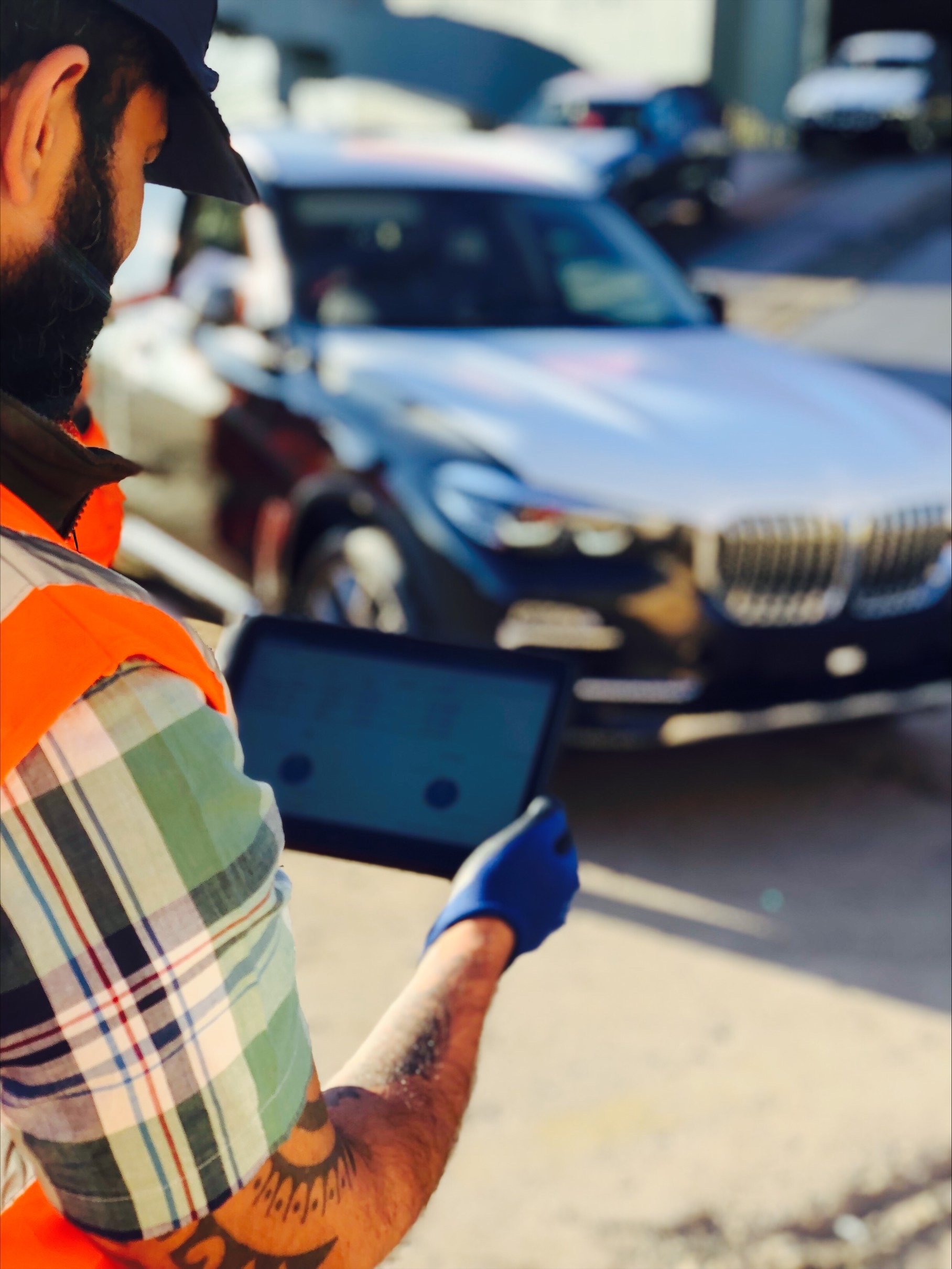Today, Associated British Ports (ABP), the UK’s largest ports group, has launched a programme to digitalise asset management across its network of 21 ports, providing a mobile solution that will enhance the reliability and sustainability of port operations.
By investing £1.5 million in a mobile solution of this scale, ABP reaffirms its role as a pioneer in driving digitalisation in the UK ports sector. In collaboration with Mainsaver and Spidex, this wider rollout follows a successful pilot trial of the new technology, which was undertaken at a number of ABP’s ports, including in Garston, Ipswich, Immingham, Hull, Newport and Southampton.
Working with ABP employees in roles which interact with Mainsaver Connect maintenance management application software, the trial ensured that both large and small ports were considered to fully test the practicalities of implementing and allocating work in a digital manner.
The deployment of the product, Mainsaver Connect, is a mobile derivative of the Mainsaver Computerised Maintenance Management System (CMMS), a US product which is supported by Spidex, a UK based developer and affiliated support arm.
Mike McCartain, ABP’s Group Director of Safety, Engineering & Marine, commented: “At ABP, we are passionate about investing in technology to enable our people to deliver the best service for our customers.
“Going digital with our asset management is an important step in building the sustainable Ports of the Future, where information is shared accurately and instantaneously, so that we can make well-informed decisions, spot trends and optimise the safety and sustainability of our operations.”
The mobile device rollout, which begins this week, will include the deployment of hundreds of tablets and focussed training sessions for engineers across ABP’s regions, which will aim to equip them with the skills and knowledge to work optimally and maximise the benefits they get from using the technology.
Taking place in parallel across ABP’s business regions of the Humber, Southampton and Wales and Short Sea Ports, the rollout will be delivered via a team approach, headed up by a lead ABP representative in each region.
Nicole Geraghty, ABP Port Planner (Maintenance), said: “I really look forward to working with this powerful new tool. It’s helpful that it will provide access to ‘real time’ information, saving our engineering teams time and ultimately keeping being able to make informed decisions based on accurate information.’”
“It is an exciting time at ABP as we see investments not only in digitalisation but also in upskilling our people and electrifying plant, cranes, vehicles as part of our ambition to make port operations more sustainable. I am thoroughly enjoying being part of ABP during this new phase.”
This latest investment in digitalisation builds on ABP's forward-thinking steps taken in 2021, when the Port of Southampton became the first British port to install a private 5G network.
Dave Schlager, Mainsaver CEO, said: “ABP's adoption of Mainsaver Connect demonstrates their commitment to leveraging digital solutions for enhanced efficiency and sustainability in port operations. With Mainsaver's mobile enterprise asset management solution, ABP can create, assign, and process work orders seamlessly, enabling technicians to manage and maintain port assets efficiently, ultimately reducing waste and promoting a greener future.”
Jonathan Starling, Spidex Managing Director, commented: “It is has been a pleasure for Spidex to work with the ABP Asset Management Team in assisting them with achieving their target of creating a ‘mobilised’ engineering and maintenance work force across their entire business. We very much look forward to the next steps on that journey both in digitising other associated processes and automating data collection from their asset base.”
Taken together, the two primary benefits of this mobile digital solution - access to enhanced information visibility in real time and instant access to stock records, will help inform business decisions and support the delivery of ABP’s net zero sustainability strategy, ‘Ready for Tomorrow’. Launched on 28 February this year, the strategy sets out a plan to reach net zero greenhouse gas emissions from ABP’s own operations by 2040.
Whilst this mobile tablet solution is a significant milestone in creating the Ports of the Future, ABP recognises that business digitalisation is an ongoing process, as new technologies emerge. For example, in July 2022, ABP became the first UK ports group to trial innovative wearable safety devices designed by Rombit. The devices, which are worn on the wrist, arm or ankle, and attached to machinery, have a wide range of uses including lone worker support, collision avoidance and evacuation in case of emergency.
By investing in the latest digital technologies, ABP aims to create a great place to work, where employees can develop their skills and work at the cutting-edge of the ports industry. Building the Ports of the Future will inspire the next generation to pursue STEM careers in the maritime sector.
Find out more about the wealth of career opportunities available at ABP, all rooted in a culture that welcomes diversity, fosters talent, encourages internal movement and progression, and places safety first: Associated British Ports Careers (abports.co.uk)


